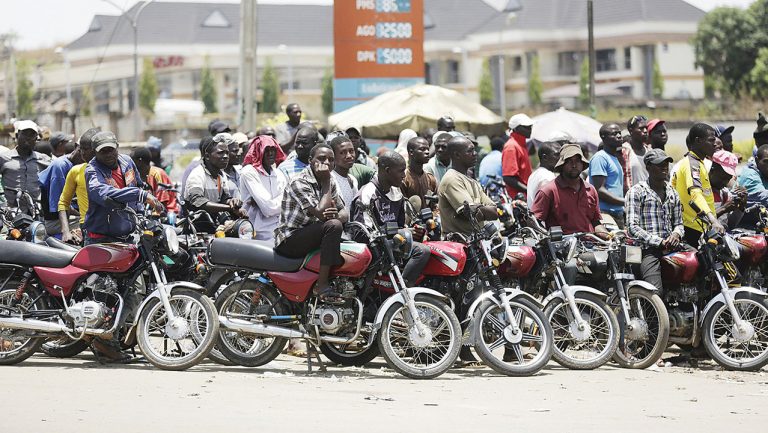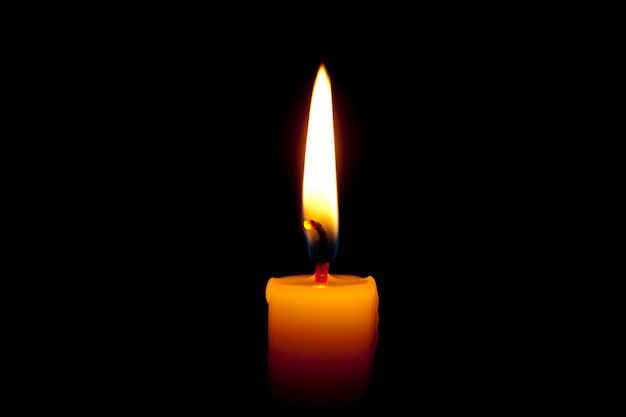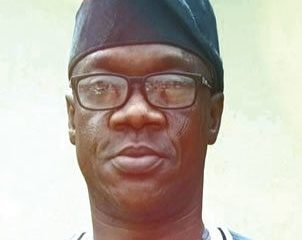News
OPINION: Yahoo Boys And Destiny
Published
4 months agoon
By
Editor
By Suyi Ayodele
Two sad incidents provoked this piece. I encountered two funeral parties late last month – before the Omo N’Oba N’Edo Uku Akpolokpolo, Oba of Benin, Oba Ewuare II, stopped all funeral rites in Benin Kingdom because of the annual Igue Festival – that got me thinking. There are two big morgues on the Ekenwan axis of Benin City. On that road, especially every Thursday, it is hell for drivers and commuters alike. The ‘mourners’, who usually accompany the deceased’s family members to the morgues, are the most-unruly lots one can ever come across. They block the road both ways and are never sober about it. When they move, they become reckless, doing stunts with their vehicles. It is also a common sight to find young boys, and at times, girls, hanging dangerously on the neck-speed vehicles! But in the two encounters I am talking about here, the reverse was the case. The funeral trains were organised, just as the ‘mourners’ were emotional and orderly.
I got intrigued by the exotic cars in the convoys. Besides, the ages of the ‘mourners’ and their signature hair styles, with the accompanying earrings fired my aproko (busybody) instinct. I knew that I needed to find out why those convoys were different from the usual ones. On the vehicles were colour posters of the photographs of the deceased. By my estimation, they would be in their late 20s or early 30s. I drove a bit away from them and parked. I came down and approached the elderly ones, who clustered in front of one of the shops close to an event centre, along the road. I joined the group. The people were also members of the aproko club. Then I got the gist. The two deceased were known Yahoo Plus guys in their areas. According to the gossip, the two boys came to wealth almost at the same time. One of the people, who appeared to be familiar with the histories of the deceased, volunteered the needed information.
According to him, the two boys did not finish secondary school before they left town. The informant said that they first went to Ghana, and then relocated to only God-knows-where. What happened next was that the duo later returned to Benin in solid wealth. They came back late 2021. The two boys, on arrival, were said to have bought different cars. They also built houses for their parents, and built mansions for themselves. Of course, ladies got attracted to them the same way ants swarm on sugar. They became the big boys of their areas. In Sapele Road, where they built their mansions, they were the real “happening guys”. Then suddenly, around mid-October, something strange happened. One of them fell ill. The second took him to hospital. A few days later, the other one too fell ill. Neighbours also rushed him to the same hospital. Within one week, the two young men died. Nobody, according to the informant, could say what happened to them. Then he concluded: “Their money ritual don expire.” I have heard enough. I shook my head and headed back to my car. I overtook the two convoys around the University of Benin (UNIBEN), Ekenwan Campus, area. They were solemn in their movement. I took a brief look at the other ‘mourners’ in their exotic cars. I shook my head again. I remember the saying of our elders: “Oku nsun’kun oku…”- the dead also mourn the dead! How long will these ones too last before they will follow suit? If they too got their ‘wealth’ through rituals, what is the expiry date given to them? But the biggest question that troubled my mind as I drove to town to mind my own business like the typical Falana that I am, was: Is there anything like money-ritual – oogun owo?
FROM THE AUTHOR: OPINION: Fubara, Wike And Day I Broke Duck’s Eggs
I had an uncle, who died in 1993. His name is Orilonise (your destiny does all for you). Ori in Yoruba means head. But if one goes deeper, its actual interpretation is Ayanmo. In further Yoruba semantics, Ori can also mean Ipin. Ipin, simply means one’s portion or lot. So, when used interchangeably, Ori or Ipin, means destiny. In the African belief system, destiny is believed to predate man’s sojourn here on earth. Whatever a man becomes, we believe has to do with the portion allotted to him by the Almighty. When you hear the Yoruba name for the Almighty as Orunmila, what it simply means is that only Heaven knows who will be rich (Orun-lo-mo-eni-to-ma-la). Yemi Elebuibon, the famous Ifa priest says of Ori in his “The Healing Power of Sacrifice” (2014) that: “Destiny is believed to have very strong imprints on the type of life one lives. Hence the saying: A kunle, a yan Ipin. A dele aye tan oju yan ni (We choose our destiny on bended knees. But arrive on earth to start struggling). This simply means that most of the problems with which man has to wrestle have been pre-destined…. In Yoruba language use, an individual may be referred to as Oloriire or Oloriburuku (a fortunate and unfortunate man, respectively), depending on the accomplishments and failures of the individual person concerned. However, the type of head chosen does not preclude hard-work, good character, sacrifice and prayers. These elements are to be present to assist everyone to achieve the lot apportioned to him” (Page 42-43). If we accept the quoted Ifa priest’s position on destiny, it then means that one can assist one’s destiny to achieve that which has been pre-destined by the Cosmic. Then how does one achieve that? Through ritual or sacrifice, or outright charm – oogun?
I know that people get wealthy through ritual or oogun. There were cases of such money-rituals when we were growing up. But it all ended up very badly. We knew about the harvest-propelling charm by farmers, known in the local parlance as Ako. Ako are in two forms. The first is deadlier; an epitome of wickedness in its naked form. It involves an individual killing others (relations, neighbours or just any other man) by metaphysical means. The dead victims afterwards transformed to physical beings, who are commanded to work on the farmlands of the ritualist. What this does for the ritualist is that his farms become larger, more productive than most of his contemporaries, even though he puts very little effort. A large farm would eventually translate to a large harvest and more money. The second degree of Ako is when two farmers share farm boundaries. For the ritualist, while his own farm produces, let’s say, yam tubers, would, on harvest, turn out bigger and healthier, the ones from his neighbour’s farm, miserable. The former achieves this by simply transferring his neighbour’s yam seedlings to his own (ritualist’s) farm. Such esoteric behaviour comes with grave repercussions.
FROM THE AUTHOR: OPINION: Time Ticks For Nigerian Ruling Elite
The other level is called Aworo. This is used mainly by traders. Aworo simply means customer-pulling charm. For the user, no matter where his business is located, customers must come looking for him. If anyone is unfortunate to share the same market store with the ritualist, while the Aworo ritualist would continue to sell and replenish his stock, the ope (naïve) trader would only be opening his or her shop as mere ‘ritual’ as he or she gets little or no patronage. The twin brother of Aworo is Awure – fortune-attracting charm. This is common among corporate workers or government officials, who do such to gain favour from their bosses, or to attract some perks to themselves. For someone using Awure, he can be promoted to higher responsibility above his superiors. It just happens and no one would be able to explain it. Like every other ritual, Awure can be positive or negative. There are instances too where someone using the charm is skipped when fortune is being shared. I heard about a very popular politician, who was very close to one of the ex-governors in the South-West states. There was a particular year the governor decided to buy Sports Utility Vehicles (SUVs) for all the political leaders in the state. In a twist of fate, the governor was said to have given the vehicles to all other political leaders except that particular man, his Man Friday. When the attention of the governor was eventually drawn to the omission, the governor was quoted to have said: “Ha! Baba, awure ti po ju – ha, Baba, too much fortune-attracting charm! The Internet, these days, is awash with videos of young boys and girls involved in money-making rituals. Some are seen taking their bath in public all in the name of sacrifices to become rich. Do sacrifices bring about wealth?
I return to Elebuibon to answer this poser. In the second chapter of the quoted book above, with the title “The Importance of Sacrifice: The Conflict Between Sacrifice (Ebo) and Medicine (Oogun), the Ifa priest says: “A small sacrifice. A little medicine. While the medicine is for troubled days The sacrifice is for everyday” (page 78). My little knowledge of this issue would allow me to make a distinction between sacrifice (Ebo), which is always prescribed by a Babalawo (Diviner), and ritual (Etutu), which, most often than not are prescribed by an Adahunse (sorcerer), for their clients. I have read Professor Wande Abimbola’s “Ijinle Ohun Enu Ifa” (Parts 1 and 2), a couple of times. I also glanced through his “Awon Oju Odu Merindilogun”, twice or more. I have equally studied Elebuibon’s “Ifa Eleri Ipin” and Abosede Emmanuel’s English Translation of E. M. Lijadu’s “Ifa (as Literature) Nipa”. In my formative years, I watched, with keen interests, hundreds of raw divinations, I have never come across where a Babalawo engages in money-ritual- making divination. The only one close, which space would not allow me to relay here, is that of an ancient Olowo (king of Owo). Even at that, the sacrifice prescribed by Ifa for the ancient Olowo to make even in life is such that only a hard-working individual would be able to carry out! Hard work, diligence and perseverance are the ingredients of wealth as demonstrated by our forebears. So, from where do these young folks get their idea of Yahoo Plus or Yahoo Rituals? Definitely not from a Babalawo to gbo Ifa lotu Ife – A Babalawo who understands Ifa the way of old! The only possible way the boys in town get this sudden wealth is from sorcerers (Adahunse). In the ranking of spiritualists in my part of the world, Adahunse occupies the lowest level of the ladder. Not even Oloogun (Medicine man), who is senior to an Adahunse, can rival an Onisegun (Herbalist – those who cure through the herbs), who is also a younger brother of a Babalawo.
FROM THE AUTHOR: OPINION: Gbelebu As Agbelebu Of Misgovernance
For as long as we have many Adahunse roving around as Babalawo, we would continue to have a people with sudden wealth. And the result is that we would continue to have young boys and girls going to their graves in their primes. Even when one goes for rituals or sacrifices to hasten one’s destiny, the injunction of Elebuibon, to wit: “…However, the type of head chosen does not preclude hard-work, good character, sacrifice and prayers…”, must come to play. We are about to go to a new year. Parents and guardians have more important roles to play in molding, and re-shaping the lives of their children and wards. I still don’t get it how a father would re-park his own car in his own compound to accommodate the car of his year-three undergraduate son! I can’t place where the parents who supervise building projects of their secondary school-drop-out-20-year-old children place their morals. As long as we have Yahoo Boys Mothers’ Association protesting the arrest of their children by the Economic and Financial Crimes Commission (EFCC), we will continue to have parents witnessing the funerals of their children in their prime. May that not be our portion in the new year. MERRY CHRISTMAS!
You may like


Bello And Enenche: A Tale Of Two Lions [OPINION]


OPINION: Why Were Miyetti Allah And Tinubu’s Iyaloja In Ibadan?


OPINION: Bobrisky’s Masque, Yahaya Bello’s Boa


OPINION: Onitiri-Abiola And The Madness In Ibadan


OPINION: For Yoruba Muslims And Pentecostals


OPINION: Bobrisky And Our Other S/He Offsprings
News
Lagos, Ondo, Taraba Top In Highest Okada Fares In March – NBS
Published
12 hours agoon
April 28, 2024By
Editor
A recent National Bureau of Statistics report shows Lagos, Ondo, and Taraba recorded the highest Okada (motorcycle) fares in March.
The data indicates substantial differences in transportation costs across various Nigerian states.
In March 2024, the average fare for Okada rides per trip in Nigeria rose by 2.15% compared to the same period last year, with fares reaching N472.16, up from N462.21 in March 2023.
This was contained in the most recent National Bureau of Statistics Transport Fare Watch report for March 2024, published on the agency’s website.
READ ALSO: Ondo 2024: lT Expert Emerges As SDP Candidate
However, fares in Lagos, Ondo, and Taraba states were notably above the national average for March 2024.
Lagos had the highest Okada fare at N850 per trip, with Ondo following at N725 and Taraba at N670, illustrating significant differences in transportation costs across regions.
Imo and Yobe states, with average Okada fares of N655 and N630 respectively for March 2024, ranked fourth and fifth among Nigerian states for the highest motorcycle journey costs per trip.
News
Trouble Looms As OAU Students Threaten Shut Down With FG Over Fuel Crisis
Published
12 hours agoon
April 28, 2024By
Editor
The students’ Union of Obafemi Awolowo University said on Sunday, said the challenges faced by students due to the sudden surge in the pump price of Premium Motor Spirit and the scarcity of the product have reached unprecedented levels.
The President of the union, Abbas Ojo, in a statement released on the campus in Ile-Ife, Osun State, and sent to The PUNCH, urged the Federal Government to immediately address the issues.
The union threatened to hit the streets in protest if the situation persisted.
Since the weekend, queues have surfaced across some filling stations in Ogun and Lagos states as some stations also remained shut.
The PMS also known as petrol has been selling between N700 and N800 at some filling stations. Some persons claim to buy the fuel at prices higher than N800 in Lagos and Ogun with the situation causing a hike in transport fares.
READ ALSO: Residents Displaced As Rainstorms Wreck Havoc In Edo Community
The Nigerian National Petroleum Company Limited had said some supply issues were responsible for the queues, urging customers to exercise patience.
A resident, Tomisin Bakare, who said he bought PMS from a filling station around the Lagos State University-Igando axis stated that he was shocked when the attendant said fuel was N700 per litre.
“This is after I had already spent over 50 minutes in the queue,” he added.
According to the students’s union president, the situation is not different in Osun, particularly around the campus environs where he noted bus drivers had increased fares.
“We, as students, can no longer endure the burden imposed by the government’s economic policies,” Ojo said.
READ ALSO: 86-year-old Injured As Fire Guts Building In Kwara
“Last year, when the decision to remove fuel subsidy became public knowledge, many, including students, harboured doubts about its impact on the nation’s economy. Even those who supported the removal of subsidies were skeptical, given the absence of concrete plans to alleviate the ensuing challenges,” he added.
President Bola Tinubu on May 29, 2023, during his swearing-in, announced the removal of fuel subsidy. Since then, Nigerians have been grappling with harsh economic realities coupled with the depreciation of the naira against the dollar.
“From soaring electricity tariffs to the skyrocketing cost of living, the adverse effects of the government’s capitalist policies have spared no one.
“Despite these challenges, students persist in their pursuit of education and academic endeavours. However, recent events such as fuel shortages and fluctuating prices have left students stranded both on campus and outside campus,” Ojo stressed, noting the students had been pushed to limits.
The union demanded immediate action from the FG to address the fuel scarcity, curb suspected hoarding of fuel, and regulate prices.
“We also demand that the government should revive the country’s refineries. The government must not test our will by not addressing these demands within the next 48 hours. Failure to do so, we shall hit the streets till the government addresses the fuel crisis which constitutes a threat to our academic pursuit,” the statement added.

Popular Gospel singer Morenikeji Adeleke, also known as Egbin Orun, is dead.
Her colleague Esther Igbekele, confirmed the death in an Instagram post on Sunday.
The gospel singer expressed shock and sadness, sayin Egbin Orun departed suddenly without bidding farewell.
According to her, the two had recently spoken, unaware of the impending tragedy.
READ ALSO: How God Saved Me From Firing Squad – Gospel Artiste, Buchi
Igbekele praised Egbin Orun’s beauty, kindness, and strong support for her ministry.
She wrote, “I got home from my program to hear about this great loss.. Prophetess Morenikeji Egbin Orun you left without saying goodbye..
“We spoke together last week not knowing you are about to embark on a journey to the great beyond.. You are such a beautiful and kind hearted woman and a very good supporter of my ministry.
READ ALSO: Outrage As Kingsmen Flogged Anambra Man To Death [VIDEO]
“I am deeply saddened with your demise but God knows best. You will be greatly missed and your good deeds will continue to linger in our hearts.
“Ah Egbin Orun. Good night! Keep resting in the bosom of Christ.. Ah Gone too soon..Yeeee.”
The cause of her death remains undisclosed and no official statement has been issued.

Delta Police Kill Suspected Kidnapper, Rescue Victims, Arrest Armed Robber Cultist

Gunmen Assassinate Governor Aiyedatiwa’s Campaign Coordinator In Ondo

Five Injured As Vehicles Collide In Lagos
Trending

 News5 days ago
News5 days agoDrama! Supporters Of Yahaya Bello Perform Rituals to Prevent His Arrest By EFCC [Video]

 News5 days ago
News5 days agoVIDEO: Force PRO Orders Arrest Officers Caught On Video Bashing Driver’s Car

 News4 days ago
News4 days agoEdo: FRSC Threatens Sanction On Truck Drivers Loading Goods, Passengers Together

 Headline3 days ago
Headline3 days agoSaudi Arabia Opens First Alcohol Store, Nigerian Muslims React

 Metro5 days ago
Metro5 days agoEdo Cultists Kill Rival In Daughter’s Presence, Abandon Getaway Car

 Headline4 days ago
Headline4 days agoVIDEO: Meet Nigerian Pastor Who Predicted World Will End April 25

 News4 days ago
News4 days ago243 Passengers Cheat Death As Air Peace Plane Makes Emergency Landing At Lagos Airport

 Metro4 days ago
Metro4 days agoJUST IN: Four-year-old Boy Dies In Abuja School, Parents Suspect Foul Play

 Metro4 days ago
Metro4 days agoJUST IN: Protesters Storm APC Secretariat, Demand Ganduje’s Resignation

 News5 days ago
News5 days agoJUST IN: Wike’s Loyalist Rejects Fubara’s Redeployment, Resigns As Rivers Commissioner





























